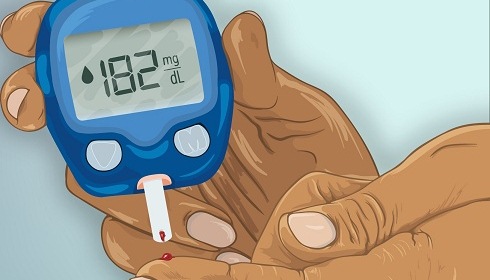
New Study Links Food Additive Emulsifiers to Increased Risk of Type 2 Diabetes
A recent study published in The Lancet Diabetes & Endocrinology sheds light on the potential dangers lurking in our food additives. Researchers from the National Research Institute for Agriculture, Food and Environment (INRAE) and the National Institute of Health and Medical Research (INSERM) in France have uncovered a concerning association between certain food additive emulsifiers found in ultra-processed foods and the risk of developing type 2 diabetes.
Type 2 diabetes, a global health concern affecting an estimated 530 million adults worldwide, with 98% of cases being of this type, is closely linked to lifestyle factors such as sedentary behavior, poor diet, and obesity. However, this new study suggests that the contents of our processed foods may also play a significant role in this epidemic.
The research, led by Mathilde Touvier, PhD, and her team, delved into data from the NutriNet-Santé web-cohort study, analyzing the dietary habits of over 104,000 French citizens over a 14-year period. Participants provided detailed dietary records every six months, enabling researchers to pinpoint the consumption of specific food additives.
Their findings revealed a potential culprit: seven food additive emulsifiers commonly found in ultra-processed foods. These additives, which are prevalent in products notorious for their high sugar, fat, and salt content, were associated with an increased risk of type 2 diabetes.
But how do these seemingly harmless additives contribute to such a serious health condition? Touvier explains that previous experimental studies hinted at adverse effects of these emulsifiers, including disruptions in gut microbiota, inflammation, and metabolic disturbances. While prior research had linked these additives to cardiovascular disease and cancer, this study marks the first to explore their potential connection to type 2 diabetes.
Looking ahead, Touvier and her team plan to delve deeper into the mechanisms underlying this association. By investigating changes in blood markers and gut microbiota associated with the consumption of these additives, they hope to unravel the mystery behind their detrimental effects on health.
Monique Richard, MS, RDN, LDN, a registered dietitian nutritionist, views these findings as a significant step toward understanding the complex interplay between diet and disease. While acknowledging the multifaceted nature of diabetes, she emphasizes the plausible role of food additives in exacerbating inflammation, disrupting detoxification processes, and compromising gastrointestinal health.
Meanwhile, Pouya Shafipour, MD, a board-certified family and obesity medicine physician, underscores the importance of these findings in prompting greater scrutiny of food additives. He highlights the known link between additives, obesity, and insulin resistance, advocating for increased government regulation and a shift toward whole, unprocessed foods.
As the global prevalence of type 2 diabetes continues to rise, studies like this serve as a wake-up call, urging both policymakers and individuals to reassess their dietary choices and prioritize real, wholesome foods over heavily processed alternatives.